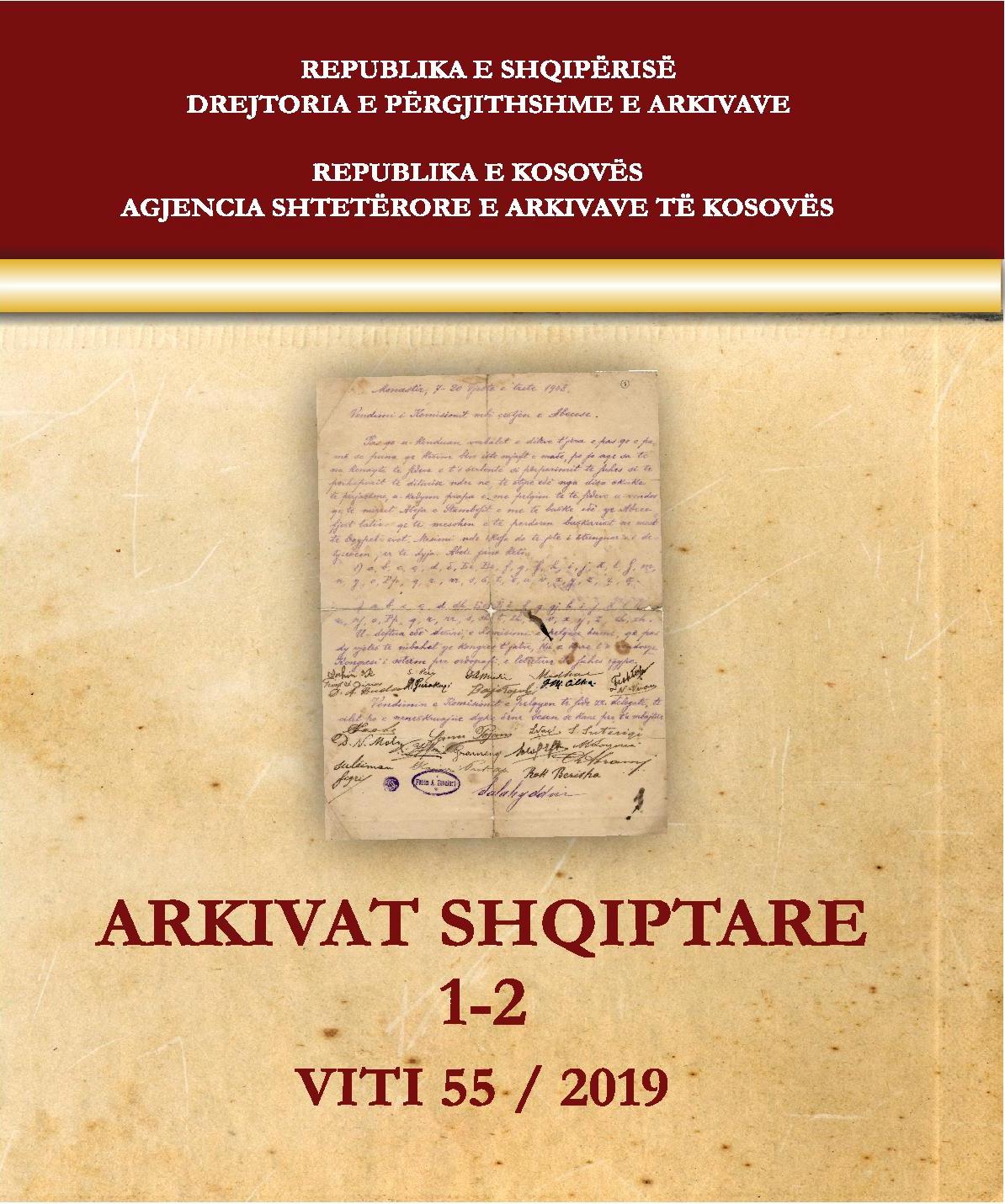Shkelja e të drejtave të njeriut në Kosovë 1990-1997, sipas materialeve të Arkivit të Kosovës
Violation of human rights in Kosovo 1990-1997, according to Kosovo Archive materials
Author(s): Adem AdemiSubject(s): History, Political history, Social history, Recent History (1900 till today), Post-War period (1950 - 1989)
Published by: Drejtoria e Përgjithshme e Arkivave e Republikës së Shqipërisë; Agjencia Shtetërore e Arkivave të Kosovës
Keywords: human rights; peaceful politics; Albanian intellectual elite; Serbian repression; international resolute on Kosova; Kosova;
Summary/Abstract: The paper we present will try to address the interest of diplomatic missions in political developments in Kosovo during the period of occupation 1990 - 1997 by the repressive government. Serbian. The topic in question analyzes with particular emphasis the violation of the rights of Albanians in Kosovo by the repressive Serbian government, during the period of destruction of the SFRY and the formation of truncated Yugoslavia, which was led by the "butcher" of the twentieth century , the Serbian nationalist, Milosevic. The violation of human rights over the Albanian people of Kosovo by the Serbian authorities and rulers has a long history of a century, but during this period, Serbian violence and terror violated all legal norms of the remaining state and acts of international conventions. For the first time, international diplomacy deals seriously with the violation of the rights of the Albanian people by the repressive Serbian government, the situation is closely monitored, international. During the last seven years of the twentieth century, two diametrically opposed concepts face each other in Kosovo. The Gandhian peaceful movement of the Albanian people of Kosovo, led by the Albanian intellectual political elite, which, in extraordinary political circumstances, creates the legal and constitutional basis of the new European state, and the classic concept of Serbian occupying hegemony, which, with the behavior of fascist, abolished the Kosovo Constitution of 1974, suspended Kosovo's central and local institutions, took over Kosovo's mass media, and removed Albanians from their jobs, using systematic police violence against the Albanian population, forcing hundreds of thousands to flee. Albanians from Kosovo. The arbiter between these two concepts, the Serbian occupation concept and the Albanian freedom-loving concept, was the mediating concept of international diplomacy. International diplomacy was extremely active in monitoring, mediating, condemning the violation of the rights of Albanians by the Serbian occupier and providing a solution to the difficult political and explosive situation in Kosovo. When democratic Europe tore down the dividing walls between peoples, the dictatorships of the communist system fell, the Russian Empire disintegrated, Serbia with fascist methods tried to create a Greater Serbia, with violence and state terror against the freedom-loving Albanian people and other peoples of the former Yugoslavia. Based on diplomatic discussions, resolutions, protocols and international conventions, approved and signed by the Yugoslav state itself,- Deprivation of Kosovo public institutions of any legal and administrative responsibilities. - Serbian apartheid in education. - Expulsion of the Albanian working class from their jobs by force. - Prohibition and occupation of information institutions in the Albanian language. - Murders of innocent Albanian citizens, and others. Since 1989, the issue of Kosovo is no longer an internal matter of Yugoslavia, but becomes an international issue, thanks to the interest of states and international institutions, which seriously addressed and condemned the violation of human rights in Kosovo, through special resolutions for Kosovo. The theme is built on the basis of unpublished archival materials, scientific publications and the press of the time.
Journal: Arkivat Shqiptare
- Issue Year: 55/2019
- Issue No: 1-2
- Page Range: 57-71
- Page Count: 15
- Language: Albanian

